|
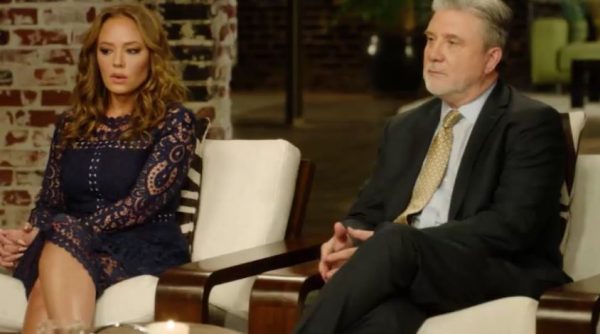
[Leah Remini and Mike Rinder, back on the case]
From Tony's Ortega blog of May 29, 2017:
We’ve seen tonight’s 2-hour A&E special episode of Leah Remini: Scientology and the Aftermath, and we can tell you that it accomplishes much more than simply tiding fans over as they await the start of season two.
When Aftermath premiered last November, it was the network’s most-watched first episode in a couple of years. It went on to average about 1.6 million viewers per episode as A&E scrambled to take advantage of its popularity by shooting a couple of special hour-long extra episodes for a season total of nine.
The second of those two special episodes featured author Lawrence Wright, attorney Ray Jeffrey, and cult expert Steve Hassan answering questions in a group setting. Tonight’s new 2-hour special follows that format as well, this time with six special guests.
But what really impressed us was the opening segment of tonight’s show, when Remini and her sidekick, former Scientology spokesman Mike Rinder, once again took the time to educate viewers about Scientology concepts, in this case the iron-clad L. Ron Hubbard policies that have produced such a toxic, unrelenting organization that tries to hunt down and destroy its critics.
This is perhaps what impresses us the most about Remini’s series, that time and again she and Rinder have taken the time to explain Scientology’s history and structure and controversies in ways that really respect the viewer — which is often missing from cable TV “reality” programming. In this case, Remini knows that much of the criticism aimed at Scientology is for its outlandish beliefs about past lives and space opera nuttiness. That’s a mistake, she believes. She wants viewers to understand that what really matters is that Hubbard left behind piles of books that contain thousands of policies that Scientology’s executives must follow to the letter even today. And those policies demand that critics — whether former members or simply curious reporters — must be dealt with brutally.
And for the doubters in the audience, Remini shows the policies on the screen, which we found really effective.

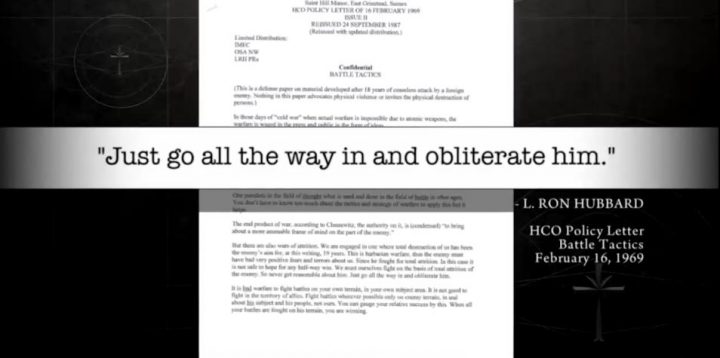
“It was important to remind people that ridiculing people for their beliefs actually gets Scientology excited, because you’re not actually focusing on the damaging policies that make up the religion,” Leah told us after we had seen the episode and asked her about the approach she was taking. “Scientology dictates how to react to people who are speaking out about it. And that’s an important message that people need to focus on instead of the Xenu stories.”
We told her it was a powerful opening segment that should be a real education for people unsure about Scientology’s motives.
“I’m glad you said that as someone who covers Scientology. That’s what journalists should be focusing on,” she says.
She and Rinder talk about how obsessed Hubbard was with reporters and the press, and how his policies give precise instructions for how to undercut reporters and feed them distracting information.
Leah says her husband, Angelo, after he viewed the episode, reminded her that she had been handled with the same policies when she confronted Scientology leader David Miscavige in late 2012, before her final exit from the organization after more than 30 years.
“When I went in to meet David Miscavige and Laurisse, his assistant, I asked him why he was attacking former Sea Org members [such as Rinder]. I have OT 8s from Israel telling me an entire mission was declared,” she says, referring to the mission in Haifa that broke away from the church in 2012. “He brought me into another room and showed me all the buildings that were coming out, and all of the renovations that were going to cost hundreds of millions. I told him, ‘I don’t give a shit about buildings. Why are you showing me buildings? These are good people being attacked by their church — why are you showing me buildings?’ He referred to a Hubbard policy, ‘Signs of Success,’ that said the only reason the church is being attacked is that it’s growing.”
Even then, she knew it was a dodge. “They’re not growing. They’re just buying buildings. They were trying to do to me what they do to journalists. But I wasn’t buying it anymore. Why was he trying to sell me on that? Because it’s all he knows. Why? Because that’s what LRH [Hubbard] says.”
Although Leah left that personal anecdote out of the episode, its message still comes through: Scientology continues to do what Hubbard established in the 1950s and 1960s — always to attack, never to defend. And to help bolster that message, Remini and Rinder bring on six special guests that our readers should be pretty familiar with.
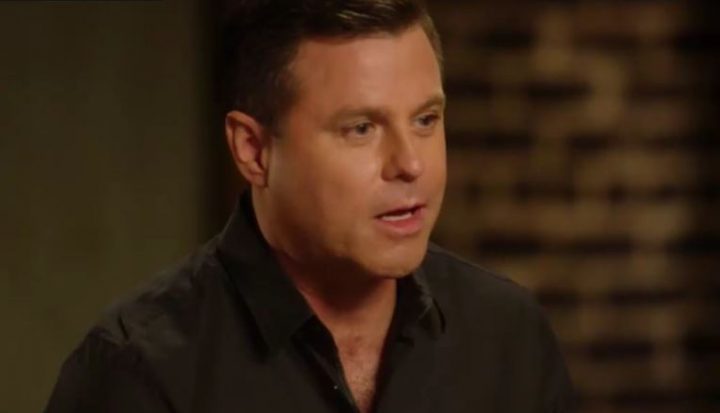
Australian television journalist Bryan Seymour has been pounding away at Scientology stories for about a decade now, and when he was starting out he got better access than just about anyone has in recent years. We especially enjoy his celebrity interviews, including Nancy Cartwright, who admitted to Bryan that she was in Scientology to become a god.

Janet Reitman’s book, Inside Scientology, came out in 2011, and we especially praised its chapters on the Lisa McPherson saga. The book grew out of an earlier story Reitman had written for Rolling Stone, where she’s a staff writer. When she was researching that story, Mike Rinder was still running the church’s intelligence wing, which handles reporters, and he lets Janet in on a few fun secrets about how they tried to derail her.
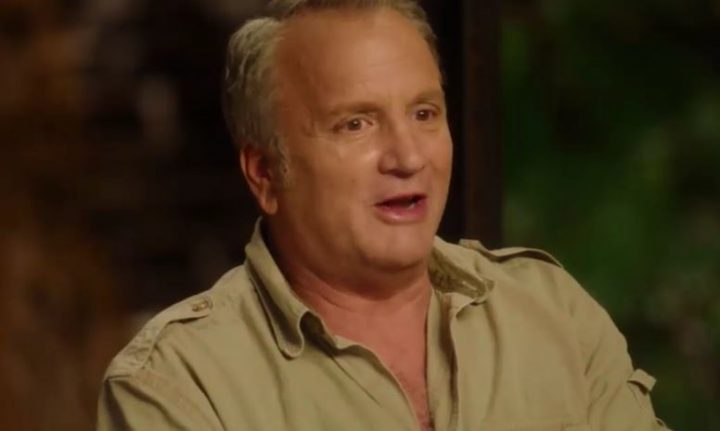
We’ve mentioned our old pal and colleague Mark Ebner here often. Not only for his terrific 1996 Spy magazine feature about Scientology (which is discussed on tonight’s program) but also his great examination of the death of Philip Gale, as well as his habit of randomly finding Scientology treasures.
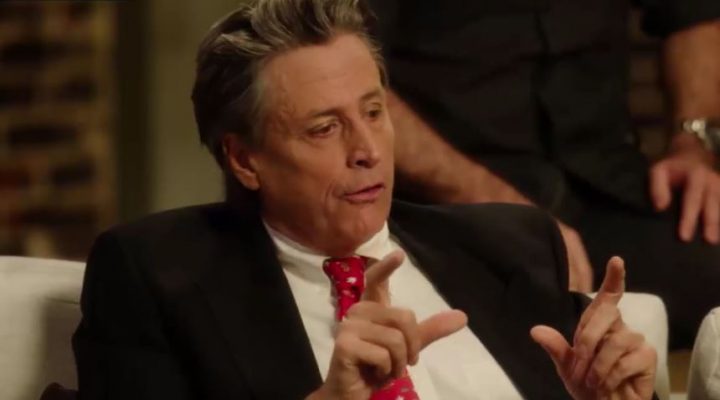
Ford Greene found out the hard way why most attorneys won’t go near Scientology litigation. While he successfully sued the church in the Lawrence Wollersheim saga, he was the subject of numerous bar complaints and Scientology dirty tricks.
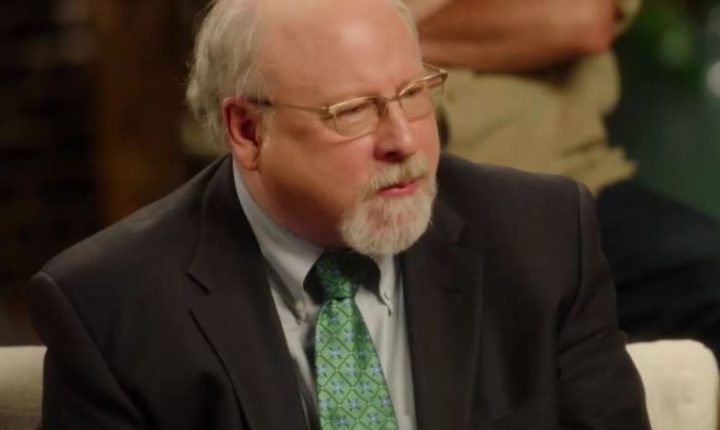
Stephen Kent, of the University of Alberta, is the real deal. Not only has he been investigating and exposing Scientology’s harsh policies — in particular its prison program, the Rehabilitation Project Force — but he also has one of the largest collections of Scientology materials in the world.
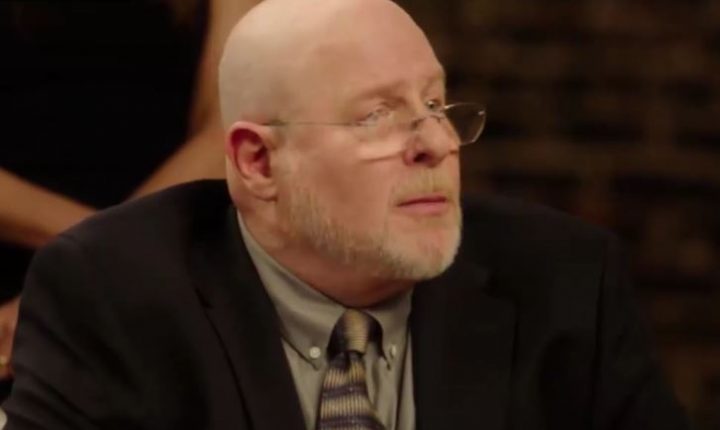
And we’re especially happy to see Len Zinberg take part. We revealed in our book, The Unbreakable Miss Lovely: How the Church of Scientology tried to destroy Paulette Cooper, that Len had been a volunteer for the Guardian’s Office who had taken part in operations against Paulette. Some 40 years later, his conscience eating away at him, he messaged Paulette, telling her what he had done and asking for her forgiveness. It was a very rare gesture, and one we’re glad to see recognized on this compelling broadcast.
Please join us in the comments section tonight as we live-blog the program. We’re looking forward to your reactions to the show!
UPDATE: Because our readers are spread around the world, and everyone loves to take part in a live-blog, here’s when to expect the action. This episode airs on the A&E network at 9 pm in New York. That translates to the following times in other places in the world — although we don’t know you’ll actually be seeing the broadcast then. (We think the US west coast broadcast may show up three hours later, for example)….
Monday Night
3 pm: Honolulu
5 pm: Anchorage
6 pm: Los Angeles
7 pm: Denver
8 pm: Chicago, Mexico City
10 pm: Buenos Aires, Rio de Janeiro
Tuesday Morning
2 am: London, Dublin, Lisbon
3 am: Paris, Rome, Berlin, Brussels, Cairo, Johannesburg
4 am: Helsinki, Athens, Moscow, Jerusalem
6:30 am: New Delhi
9 am: Perth, Beijing, Singapore
10 am: Tokyo
11 am: Sydney, Brisbane, Adelaide, Melbourne
ÂÂÂ
|

 Scientology Cult Blog
Scientology Cult Blog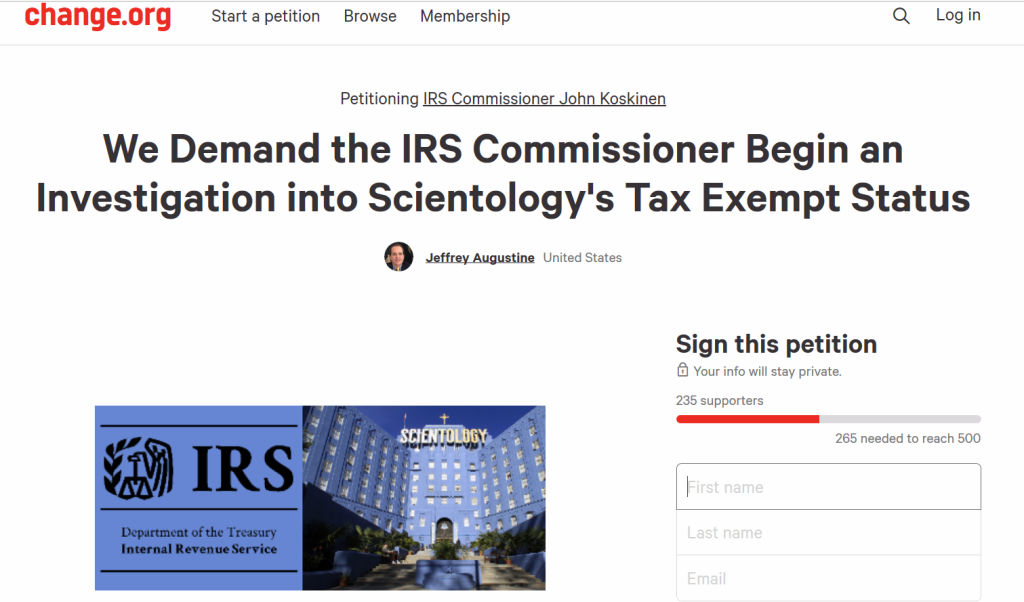









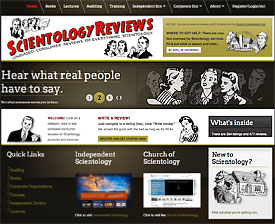
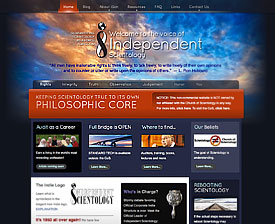
 "Scientology has been taken over by a self-appointed dictator, David Miscavige, who has turned the Creed of the Church of Scientology, the Code of a Scientologist, and the Credo of a True Group Member on their heads and instituted the virtual practice of Reverse (Black) Dianetics..."
"Scientology has been taken over by a self-appointed dictator, David Miscavige, who has turned the Creed of the Church of Scientology, the Code of a Scientologist, and the Credo of a True Group Member on their heads and instituted the virtual practice of Reverse (Black) Dianetics..." 